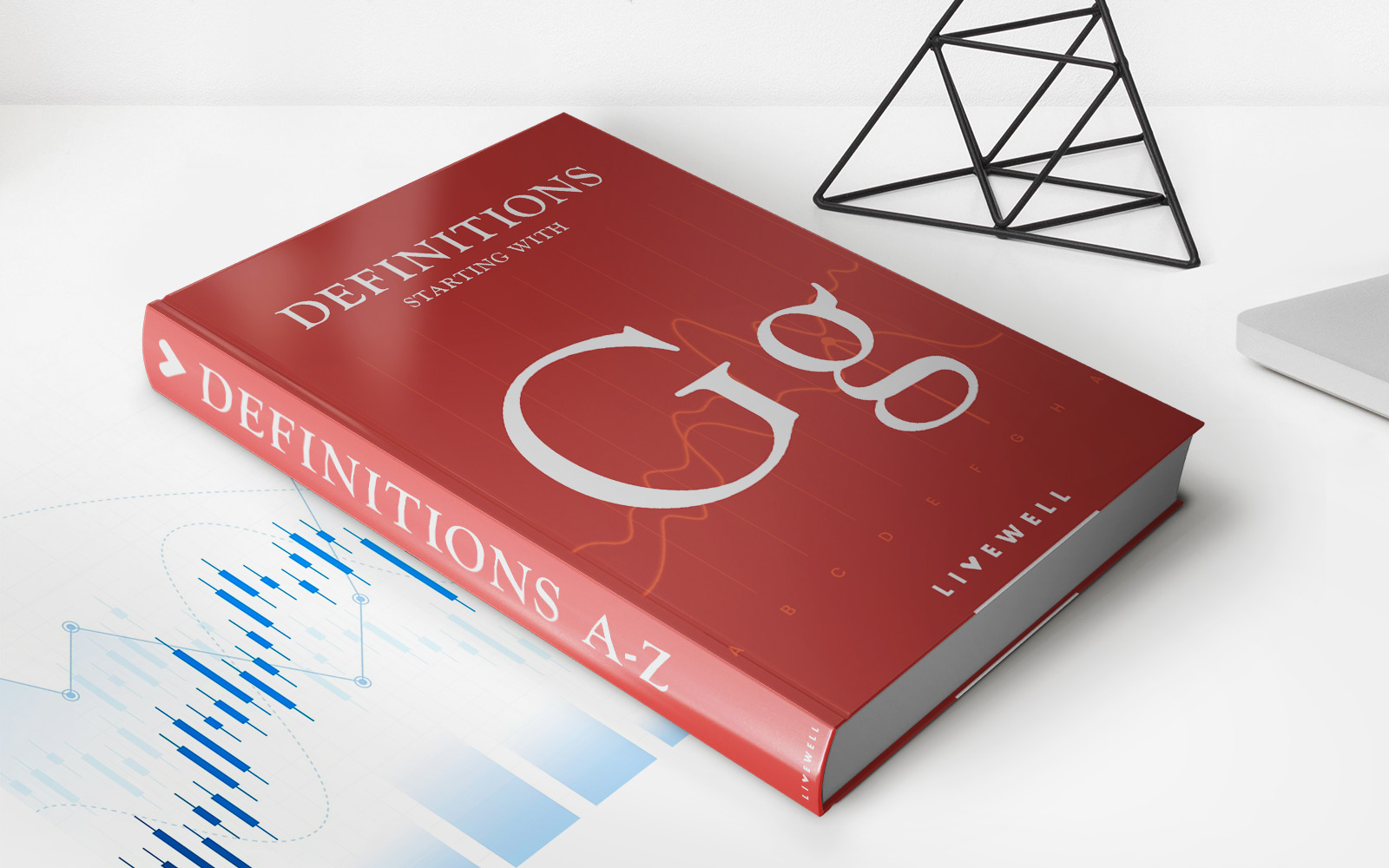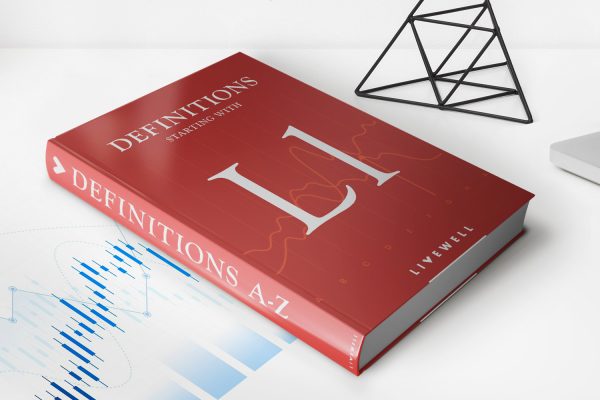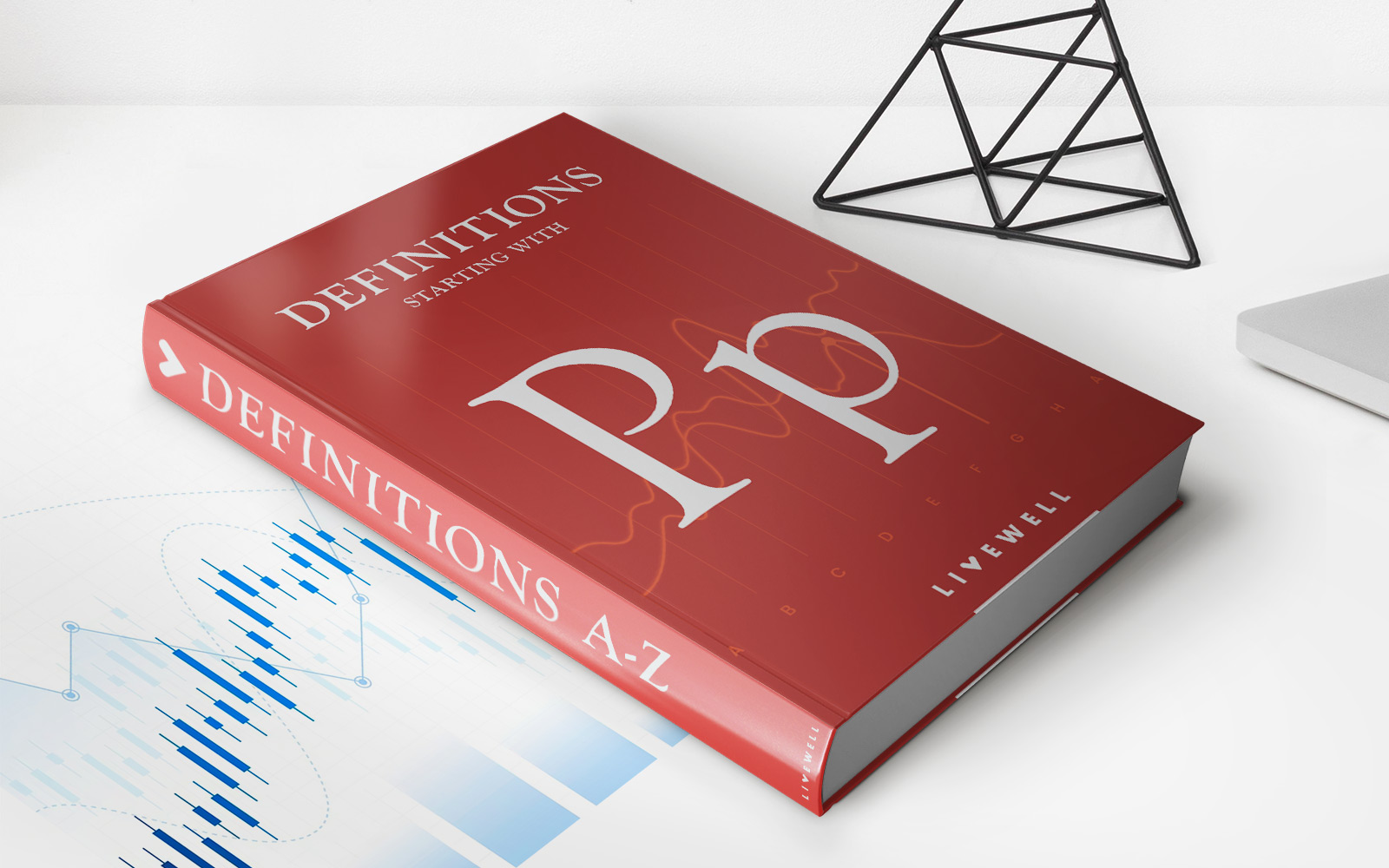Home>Finance>How Can Liquid Assets Be Used To Pay Off A Mortgage In Legal Disputes?


Finance
How Can Liquid Assets Be Used To Pay Off A Mortgage In Legal Disputes?
Modified: January 15, 2024
Learn how liquid assets can be utilized to settle mortgage payments during legal disputes in the field of finance. Gain insights on managing financial challenges effectively and resolving legal issues.
(Many of the links in this article redirect to a specific reviewed product. Your purchase of these products through affiliate links helps to generate commission for LiveWell, at no extra cost. Learn more)
Table of Contents
Introduction
When embroiled in a legal dispute involving a mortgage, individuals may find themselves facing financial challenges and uncertainty. One potential solution to alleviate these concerns is to utilize liquid assets to pay off the mortgage. Liquid assets, such as cash, investments, or valuable possessions that can be easily converted to cash, can provide the necessary funds to settle the mortgage and potentially resolve the legal dispute.
However, it is crucial to approach this strategy with careful consideration. Decisions regarding the use of liquid assets can have long-term implications on one’s financial stability. This article will delve into the concept of liquid assets, outline the connection between legal disputes and mortgages, explore the potential benefits and risks of using liquid assets to pay off a mortgage, and discuss strategies for effectively utilizing these assets.
By understanding the intricacies of liquid assets and their role in mortgage payments, individuals can make informed decisions that align with their financial goals and legal obligations.
Understanding Liquid Assets
In the realm of finance, liquid assets refer to assets that can be easily and quickly converted into cash without incurring significant losses. These assets retain their value and can be readily accessed when needed. Common examples of liquid assets include cash, savings accounts, money market funds, certificates of deposit (CDs), stocks, bonds, and certain types of investments.
One key characteristic of liquid assets is their high liquidity. Liquidity is the measure of how easily an asset can be converted into cash. Assets with high liquidity can be quickly sold or used as collateral to obtain cash, whereas assets with low liquidity may require more time and effort to convert into cash.
Another important factor to consider when evaluating liquid assets is their stability and market value. While cash is considered the most liquid asset as it can be readily spent, investments like stocks and bonds can also be highly liquid depending on market conditions. It is essential to regularly assess the stability and value of these assets to make informed decisions about their usage.
Furthermore, it’s crucial to distinguish between liquid assets and non-liquid assets. Non-liquid assets include tangible assets such as real estate, vehicles, and certain types of collectibles. While these assets may hold significant value, converting them into cash may take considerable time and effort. They are considered illiquid assets.
In the context of paying off a mortgage in legal disputes, liquid assets can provide individuals with the necessary funds to settle their mortgage obligations quickly. By utilizing cash or liquidating investments, individuals can achieve financial stability and potentially resolve their legal disputes.
Next, let’s explore the connection between legal disputes and mortgages.
Legal Disputes and Mortgages
Legal disputes can arise in various circumstances, including those related to mortgages. A mortgage is a legal agreement between a borrower and a lender that allows the borrower to purchase a property by securing a loan. The property serves as collateral for the loan, and the borrower agrees to make regular mortgage payments until the loan is fully repaid.
In some cases, individuals may find themselves in legal disputes that directly involve their mortgage. These disputes can arise due to a variety of factors, such as foreclosure proceedings, property ownership disputes, breach of contract, or disagreements with lenders regarding loan terms or conditions.
Legal disputes can be stressful and financially draining, as they often require legal representation and may result in prolonged legal proceedings. In the midst of such disputes, individuals may face difficulties in keeping up with their mortgage payments, potentially leading to foreclosure or further legal complications.
One potential solution to address these challenges is to utilize liquid assets to pay off the mortgage. By doing so, individuals can relieve the financial burden associated with the mortgage and potentially resolve the legal dispute.
However, it is important to consult with legal professionals and consider the specific circumstances of the dispute before deciding to use liquid assets for mortgage payment. Understanding the legal implications and potential consequences is crucial to make an informed decision and protect one’s interests.
Now that we have explored the connection between legal disputes and mortgages, let’s delve into the process of using liquid assets to pay off a mortgage.
Using Liquid Assets to Pay Off a Mortgage
When facing a legal dispute involving a mortgage, individuals may consider using their liquid assets to pay off the mortgage in order to resolve the issue. Utilizing liquid assets for this purpose can offer several potential benefits, but it is essential to weigh the pros and cons before making any decisions.
One of the main advantages of using liquid assets to pay off a mortgage is the ability to quickly settle the debt and potentially avoid further legal complications. By paying off the mortgage in full, individuals can eliminate the risk of foreclosure and satisfy their financial obligations related to the property.
Moreover, using liquid assets can provide individuals with a sense of financial freedom and stability. Paying off the mortgage can free up monthly cash flow, as there will no longer be a need to make mortgage payments. This can help individuals regain control over their finances and reduce financial stress caused by the legal dispute and ongoing mortgage obligations.
Additionally, paying off the mortgage can potentially improve one’s creditworthiness. By eliminating a significant debt, individuals may see an improvement in their credit score, which can have positive effects on future financial endeavors.
However, there are also potential risks and considerations to keep in mind when using liquid assets to pay off a mortgage. Liquid assets should only be used after carefully analyzing the financial situation and feasibility of such a decision. It is important to evaluate the impact on overall financial stability and future financial goals.
Furthermore, liquidating investments or depleting cash reserves can have long-term implications. Individuals should consider the potential loss of investment returns, the impact on retirement savings, and the ability to handle unexpected expenses in the future.
Additionally, it is crucial to consult with legal and financial professionals to ensure that using liquid assets for mortgage payment aligns with the specific legal requirements and obligations of the dispute.
Now that we have explored the benefits and risks of using liquid assets to pay off a mortgage, let’s discuss some strategies to effectively utilize these assets.
Potential Benefits and Risks
Using liquid assets to pay off a mortgage in legal disputes can have several potential benefits and risks that individuals should carefully consider before making a decision.
One of the primary benefits of utilizing liquid assets is that it allows for the quick settlement of the mortgage. By using cash or liquidating investments, individuals can satisfy their financial obligations related to the property and potentially resolve the legal dispute in a timely manner.
In addition, paying off the mortgage can provide individuals with a sense of financial relief and stability. Eliminating the need for monthly mortgage payments can free up cash flow, reducing financial stress and improving overall financial well-being.
Another potential benefit is the potential improvement in creditworthiness. Paying off a significant debt, such as a mortgage, can positively impact one’s credit score, increasing the chances of obtaining favorable financial opportunities in the future.
However, there are also risks and considerations associated with using liquid assets to pay off a mortgage. One important risk to consider is the potential loss of investment returns. Liquidating investments, such as stocks or bonds, may result in selling these assets at a time when their value is low, leading to potential financial losses.
Additionally, using liquid assets to pay off a mortgage may deplete cash reserves. It is important to assess the impact this will have on one’s overall financial stability and ability to handle unexpected expenses in the future.
Furthermore, individuals should be aware of any potential tax implications when using liquid assets. Depending on the type of assets being liquidated and the jurisdiction’s tax laws, there may be tax consequences to consider.
Another risk to consider is the potential loss of diversification. Liquidating investments to pay off a mortgage may result in a less diversified portfolio, which could impact long-term investment performance and risk management.
Lastly, it is crucial to consider the specific legal requirements and obligations of the legal dispute. Consulting with legal and financial professionals is essential to ensure that using liquid assets for mortgage payment aligns with those requirements.
By carefully weighing these potential benefits and risks, individuals can make informed decisions regarding the use of liquid assets to pay off a mortgage in legal disputes.
Strategies to Utilize Liquid Assets
Utilizing liquid assets effectively to pay off a mortgage in legal disputes requires careful planning and consideration. Here are some strategies to help individuals make the most out of their liquid assets:
1. Evaluate Cash Flow: Assess your current financial situation and cash flow to determine how much of your liquid assets you can comfortably allocate towards paying off the mortgage. Consider your monthly expenses, emergency fund, and other financial obligations.
2. Prioritize Debts: Prioritize your debts and obligations. If your mortgage has a high interest rate or if you’re facing foreclosure, it may make sense to use your liquid assets to pay it off first. However, if you have other high-interest debts, it may be more beneficial to pay those off first and continue making mortgage payments.
3. Review Investment Performance: If you’re considering liquidating investments, review their current performance and potential future growth. Consider factors such as market volatility, potential returns, and your investment time horizon. This will help you determine whether it’s the right time to sell investments or if it’s better to hold onto them.
4. Seek Professional Advice: Consult with financial advisors and tax professionals to understand the potential implications of using liquid assets. They can provide guidance based on your specific situation, helping you make informed decisions while considering tax consequences and long-term financial goals.
5. Consider Partial Payment: Instead of using all of your liquid assets to pay off the mortgage in full, consider making a partial payment. This can help preserve your cash reserves while reducing the outstanding balance and potential interest costs. Discuss this option with your lender to understand how partial payments are handled in your specific legal dispute.
6. Explore Loan Modification or Refinancing: Before using your liquid assets, explore options for loan modification or refinancing. These alternatives may provide more favorable terms, lower interest rates, or a longer repayment period, making it easier to manage the mortgage while preserving your liquid assets.
7. Keep Documentation: Maintain thorough documentation of all financial transactions and communications related to the use of your liquid assets for mortgage payment. This includes receipts, bank statements, and any agreements or legal documents, as they may be vital in resolving the legal dispute and ensuring compliance with legal obligations.
Each individual’s situation and legal dispute are unique, so it’s important to evaluate the various strategies and seek professional advice to determine the most suitable approach for utilizing liquid assets effectively.
Considerations for Legal Documentation
When using liquid assets to pay off a mortgage in legal disputes, it is crucial to properly document the financial transactions and legal agreements involved. Detailed and accurate legal documentation is essential for protecting your rights and ensuring compliance with legal obligations. Here are some key considerations when it comes to legal documentation:
1. Consult Legal Professionals: Seek guidance from experienced legal professionals who specialize in real estate, mortgages, and the specific legal dispute at hand. They can provide valuable advice on the documentation requirements and help you navigate through the legal complexities.
2. Gather Complete Information: Ensure that you have all relevant information pertaining to your mortgage, such as the loan agreement, payment history, outstanding balance, interest rate, and any foreclosure or legal proceedings. This information will be necessary for accurate documentation and determining the exact amount needed to pay off the mortgage.
3. Document the Source of Liquid Assets: Clearly establish and document the origin of your liquid assets. This includes providing evidence of the cash source or receipts for the liquidation of investments. This documentation is crucial in validating the legitimacy of the funds used for mortgage payment.
4. Obtain Lender Approval: It is important to consult with your lender throughout the process and obtain their approval for utilizing liquid assets to pay off the mortgage. This may involve submitting documentation, such as a formal request, supporting financial statements, and legal agreements. Make sure to obtain written confirmation of your lender’s acceptance and any required modifications to the mortgage agreement.
5. File and Preserve Documentation: Maintain organized records of all legal documentation, financial transactions, and communication related to the use of liquid assets for mortgage payment. Keep physical and digital copies of documents such as payment receipts, bank statements, legal contracts, and correspondence with your lender. These records are vital in the event of any disputes or future legal proceedings.
6. Compliance with Legal Requirements: Ensure that all documentation adheres to the legal requirements and regulations governing mortgage payment in your jurisdiction. Working closely with legal professionals will help ensure that your documentation meets all necessary legal standards and protects your rights throughout the process.
7. Retain Documentation for Future Reference: Keep the documentation related to the use of liquid assets for mortgage payment for an extended period of time. This will be useful for future reference, tax purposes, and potential audits. It is recommended to retain these records for at least several years, if not longer.
By paying careful attention to legal documentation, individuals can safeguard their interests, demonstrate compliance with legal obligations, and ensure a smoother resolution for their mortgage-related legal dispute.
Conclusion
When navigating a legal dispute involving a mortgage, utilizing liquid assets to pay off the mortgage can provide individuals with a potential solution to alleviate financial burdens and resolve the dispute. However, it is crucial to approach this strategy with careful consideration.
In this article, we explored the concept of liquid assets, their role in mortgage payments, and the connection between legal disputes and mortgages. We discussed the potential benefits of using liquid assets to pay off a mortgage, including the ability to quickly settle the debt, achieve financial stability, and potentially improve creditworthiness.
Additionally, we highlighted the risks and considerations of using liquid assets, such as potential loss of investment returns, depletion of cash reserves, and the need to consult with legal and financial professionals. We also provided strategies to effectively utilize liquid assets, which include evaluating cash flow, prioritizing debts, seeking professional advice, and considering partial payments or loan modification.
Lastly, we emphasized the importance of proper legal documentation throughout the process. Consultation with legal professionals, gathering complete information, obtaining lender approval, and preserving all relevant documentation were discussed as essential steps to protect one’s rights and ensure compliance with legal obligations.
In conclusion, while leveraging liquid assets to pay off a mortgage in legal disputes can provide relief and resolution, individuals should carefully assess the benefits, risks, and legal considerations involved. By making informed decisions, seeking professional advice, and maintaining meticulous legal documentation, individuals can navigate the complexities of their legal dispute and achieve a favorable outcome.
Remember, every situation is unique, and what works for one individual may not be suitable for another. It is important to consult with professionals and carefully evaluate the specific circumstances before deciding on the best course of action.














